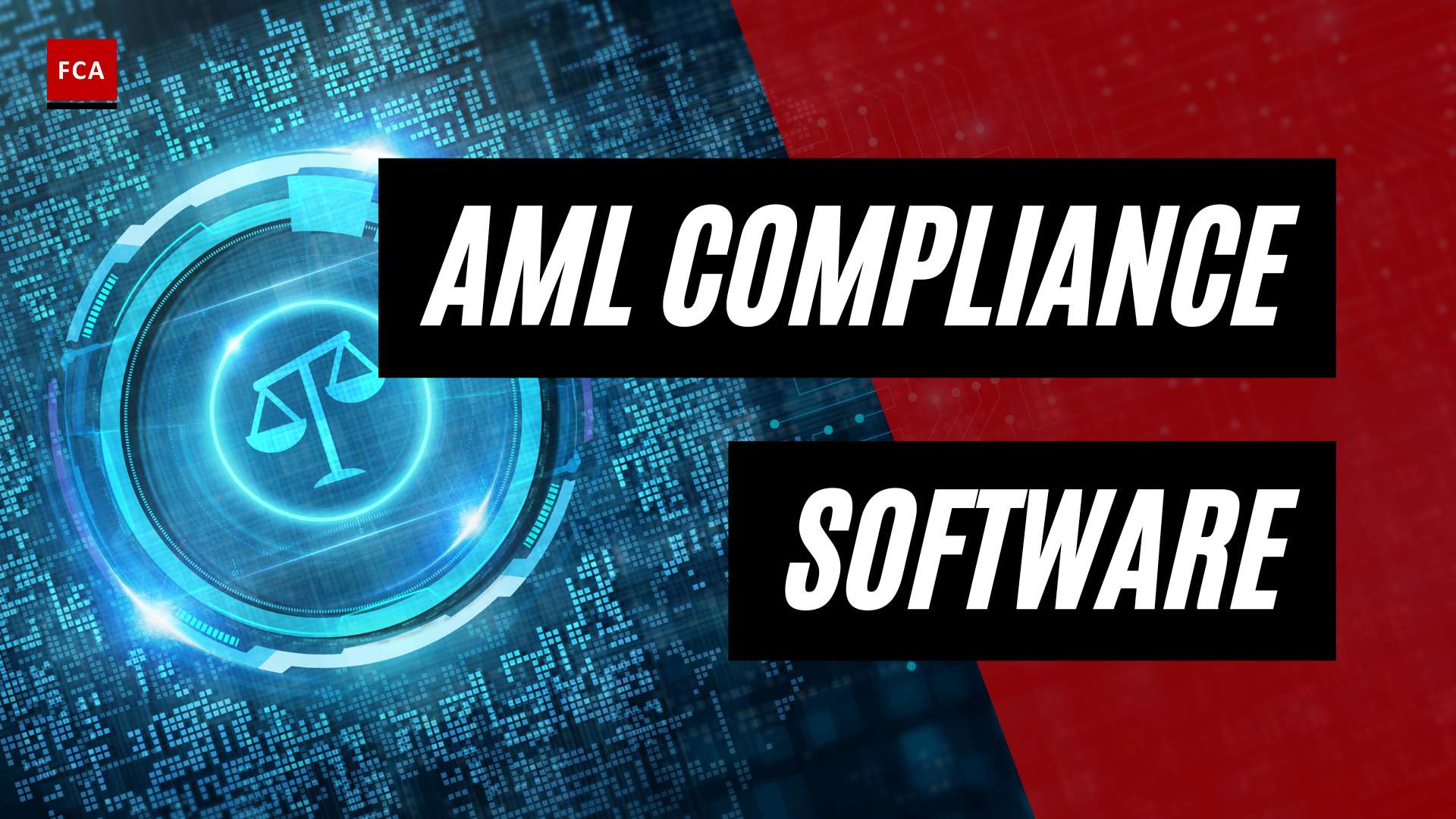Exploring AML Training for Accountants
Anti-Money Laundering (AML) training is a critical part of risk and compliance programs for businesses in the financial sector. Accountants, due to their expertise in financial matters and their role in managing and processing financial transactions, play a vital role in these programs. This makes AML training for accountants an essential part of their professional growth and the overall health of their organizations.
Basics of AML Training
AML training for accountants covers several crucial topics related to financial crimes and regulations. This training provides accountants with the tools and knowledge needed to prevent financial crimes, identify suspicious activities, and comply with AML regulations (Financial Crime Academy).
The training includes areas such as:
- Transaction monitoring
- Customer due diligence
- Suspicious activity reporting
- Understanding and complying with AML regulations.
One of the critical elements of AML training is teaching accountants how to identify red flags that could indicate potential money laundering activities within financial transactions (Financial Crime Academy).
Role of Accountants in AML Compliance
Accountants play a crucial role in the fight against money laundering. Their involvement is essential to the success of AML programs due to their expertise in financial matters and their ability to identify irregularities in financial transactions.
In the context of AML compliance, accountants are often the first line of defense. They have an in-depth understanding of their clients’ financial situations and transaction patterns, making them uniquely positioned to identify potential risks.
In fact, consistent and high-quality AML training has been recognized as a necessity, with firms often providing insufficient training for their staff regarding AML. This highlights the importance of quality training for accountants.
By understanding the basics of AML training and the crucial role accountants play in AML compliance, it becomes clear why this specific training is a key area of focus in the financial sector.
While we’ve focused on accountants in this section, it’s worth noting that AML training is crucial for many other roles as well. If you’re interested, explore our resources on AML training for auditors, AML training for lawyers, AML training for regulators, and more.
Key Areas of AML Training
The AML training for accountants covers a range of critical areas. It equips them with the necessary tools and knowledge to prevent financial crimes, identify suspicious activities, and comply with AML regulations (Financial Crime Academy). Here, we explore three key areas of focus in AML training for accountants.
Understanding Money Laundering Risks
Firstly, accountants must understand the risks associated with money laundering. They need to be aware of the various methods that criminals use to disguise illegal funds and the potential indicators of these activities. The training emphasizes the importance of maintaining accurate records and conducting ongoing monitoring to detect and prevent money laundering activities. As financial experts, accountants play a vital role in the fight against money laundering, and their involvement is crucial to the success of AML programs.
Identifying Red Flags in Transactions
Another key area of focus in AML training for accountants is the identification of “red flags” or suspicious activities within financial transactions. These could be unusually large transactions, frequent transactions with no clear business purpose, or transactions that involve high-risk countries. Being able to identify these red flags allows accountants to report suspicious activities promptly and contributes significantly to the overall effectiveness of a company’s AML program.
Customer Due Diligence and Risk Assessment
Customer due diligence is a fundamental aspect of AML compliance. Accountants are trained in performing thorough due diligence procedures to understand their customers’ business activities and identify any potential AML risks. This could involve verifying the customer’s identity, understanding the nature of the customer’s business, and assessing the risk level of the customer based on various factors such as their location, business activities, and transaction patterns.
In conclusion, AML training for accountants covers a broad spectrum of topics and skills, all of which are crucial for maintaining AML compliance and preventing financial crimes. By understanding money laundering risks, identifying suspicious transactions, and performing diligent customer assessments, accountants can contribute significantly to their company’s AML efforts.
For those interested in specialized AML training, you can explore courses tailored for various professionals such as auditors, lawyers, regulators, compliance officers, banking professionals, financial analysts, risk managers, law enforcement, and insurance professionals.
Regulatory Framework for AML Training
The effectiveness of AML training for accountants is significantly influenced by the relevant regulatory framework. This framework varies depending on the jurisdiction and the specific requirements of the accounting profession.
U.S. Regulatory Compliance
In the United States, several laws and regulations highlight the importance of AML compliance. The most significant of these is the Bank Secrecy Act (BSA) of 1970, which plays a crucial role in fighting and preventing money laundering. Violations of the BSA can result in severe penalties, including fines of up to $500,000, imprisonment for up to ten years, or both (Unit21).
Additionally, the USA PATRIOT Act enforces stringent AML compliance requirements on banks and financial institutions. Non-compliance with this act can lead to fines of up to $1 million or double the value of the transaction, imprisonment, or both.
The Office of Foreign Assets Control (OFAC) is another important regulator in the U.S., enforcing sanctions and holding entities accountable for violations. Non-compliance with OFAC can result in fines of up to $20 million and imprisonment of up to 30 years (Unit21).
EU and Global Regulations
The European Union has established its own set of regulations, known as the Anti-Money Laundering Directives (AMLDs), to combat money laundering and terrorist financing. Non-compliance with these directives can result in penalties of up to 5 million euros and increased prison sentences.
In Canada, the Proceeds of Crime (Money Laundering) and Terrorist Financing Act (PCMLTFA) mandates every reporting entity across sectors to establish an Anti-Money Laundering and Anti-Terrorist Financing (AML/ATF) compliance program. This program requires a governance framework, detailed processes, and procedures to identify and report suspicious or prescribed activities to the financial intelligence unit for law enforcement support.
Specific AML Regulations for Accountants
While AML regulations apply broadly across various sectors, there are specific requirements that accountants must adhere to. These include conducting a risk assessment, implementing internal controls, providing employee training, and independent testing of the AML program. These measures ensure that accountants are well-equipped to identify potential money laundering activities and report them accordingly.
Understanding the regulatory framework is a crucial part of any AML training program, and accountants must stay informed about changes and updates to these regulations. This knowledge helps them maintain compliance and avoid severe penalties associated with non-compliance. For more information on AML training for specific roles, you can explore our content on aml training for auditors, aml training for lawyers, and aml training for regulators.
Consequences of Non-Compliance
The importance of AML training for accountants cannot be overstated, especially when considering the potential consequences of non-compliance. These can range from civil and criminal penalties to serious disruptions in business operations.
Civil and Criminal Penalties
Financial organizations that violate AML regulations can face both civil and criminal penalties, which can include substantial fines, imprisonment, and sanctions barring them from doing business.
Notably, the Bank Secrecy Act (BSA) of 1970, a significant U.S. law in preventing money laundering, stipulates that violations can result in fines of up to $500,000, imprisonment for up to ten years, or both. Meanwhile, the USA PATRIOT Act requires U.S. banks and financial institutions to understand their AML compliance obligations. Violating this act can lead to fines of up to $1 million or double the value of the transaction, imprisonment, or both. Additionally, the Office of Foreign Assets Control (OFAC) enforces U.S. sanctions. Violations of these sanctions can result in fines of up to $20 million and imprisonment of up to 30 years (Unit21).
| Violation | Penalty |
|---|---|
| Bank Secrecy Act (BSA) | Fines up to $500,000, imprisonment up to 10 years, or both |
| USA PATRIOT Act | Fines up to $1 million or double the value of the transaction, imprisonment, or both |
| Office of Foreign Assets Control (OFAC) | Fines up to $20 million and imprisonment up to 30 years |
Impact on Business Operations
Beyond the immediate legal and financial penalties, non-compliance with AML regulations can also have a significant negative impact on business operations. For instance, a public formal warning was issued to a law firm in 2021 for failing to meet AML/CFT obligations, which highlighted the risks associated with non-compliance and the potential damage to the firm’s reputation (AML Hub).
Such public disclosure of non-compliance can lead to a loss of trust among clients, shareholders, and the public. It can also lead to increased scrutiny from regulators, resulting in more frequent and intensive audits and inspections. This can be costly and time-consuming, distracting from the organization’s core business operations.
Therefore, robust AML training for accountants and other professionals in the financial sector is crucial to avoid these penalties and ensure smooth, compliant business operations. To explore role-specific AML training, you can explore our resources on AML training for auditors, AML training for lawyers, AML training for regulators, and AML training for compliance officers.
Continuous AML Training and Development
In the ever-evolving world of financial crime, it’s critical for accountants to stay at the forefront of anti-money laundering (AML) knowledge and trends. This is where continuous AML training and development becomes vital.
Keeping Up with AML Trends
Continuous AML training for accountants is essential to keep up with the latest trends, regulations, and methods used by money launderers to evade detection. This ongoing education process allows accountants to stay informed about the current landscape of financial crime and the strategies required to combat it.
This training should cover topics such as customer due diligence, transaction monitoring, risk assessment, and reporting suspicious activities to the authorities. Regular updates and refresher courses can ensure that accountants are always equipped with the most recent and relevant information, enhancing their ability to detect and prevent money laundering activities.
Role-specific AML Training
AML training for accountants goes beyond general knowledge and delves into role-specific training. The Institute of Chartered Accountants in England and Wales, in their AML supervision report, identifies good AML training and awareness as a fundamental part of a firm’s overall approach to compliance and risk. They also highlight the importance of quality training for accountants, given the identified gap in firms providing insufficient AML training for their staff (FirmCheck).
Role-specific training should be tailored according to the responsibilities and risks associated with each role. For instance, basic AML training should cover the fundamentals of anti-money laundering, AML risks, and red flags to be mindful of, especially for those handling client accounts and financial information regularly. It is essential for every relevant role in a firm to undergo this basic training to establish a common understanding across the practice team.
On the other hand, deeper AML training should be more hands-on and detailed, particularly for individuals involved in client onboarding, as they have greater insights into client activities and the associated risks or red flags. This level of training goes beyond the basics and delves into more practical and in-depth aspects of AML risk management.
There are AML training programs available for different roles in the industry, such as AML training for auditors, AML training for lawyers, AML training for regulators, AML training for compliance officers, AML training for banking professionals, AML training for financial analysts, AML training for risk managers, AML training for law enforcement, and AML training for insurance professionals.
Continuous AML training and development is a key part of an accountant’s professional journey. By staying updated with the latest trends and undergoing role-specific training, accountants can contribute significantly to their firm’s AML compliance efforts.
Utilization of AML Software and Tools
In the realm of Anti-Money Laundering (AML), technology plays an instrumental role in enhancing efficiency and accuracy in compliance. Accountants, in particular, can benefit significantly from AML-specific software and tools.
Automation and Efficiency in AML Compliance
Automation tools are available for workpaper preparation and data entry elimination. These tools streamline processes and free up time for accountants to focus on AML training (Thomson Reuters Legal).
Tax and accounting professionals can also utilize tools that offer a full line of federal, state, and local programs. These tools save time with tax planning, preparation, and compliance, which can be beneficial for AML training for accountants.
Moreover, business management tools that automate workflow can benefit legal professionals in managing projects efficiently, increasing profits, and improving client satisfaction. By optimizing work processes, these tools indirectly support AML training for accountants.
AI and Machine Learning in AML Training
The power of Artificial Intelligence (AI), cognitive computing, and machine learning can also be harnessed to aid in AML training for accountants. A powerful tax and accounting research tool is recommended as it provides more accurate and efficient results.
These advanced technologies can analyze vast amounts of data quickly and accurately, helping to identify patterns and trends that human analysts might miss. They can also automate repetitive tasks, freeing up professionals to focus on more complex areas of AML compliance.
In essence, the utilization of AML software and tools can greatly enhance the effectiveness of AML compliance efforts. By leveraging these technologies, accountants can stay abreast of evolving AML regulations and risks, augmenting their role in safeguarding the financial system against money laundering and related crimes.
For professionals in other roles seeking AML training, we have resources dedicated to AML training for auditors, AML training for lawyers, AML training for regulators, AML training for compliance officers, AML training for banking professionals, AML training for financial analysts, AML training for risk managers and AML training for insurance professionals.
AML Training Programs and Resources
When it comes to anti-money laundering (AML) training, there are numerous programs and resources available that are specifically designed for accountants. In this section, we will explore two popular options: the LIMRA AML Training Program and FirmCheck AML Training Courses.
LIMRA AML Training Program
The LIMRA U.S. Anti-Money Laundering Training Program provides a comprehensive and cost-effective way for financial services firms to meet key U.S. Treasury Department rules. The program is designed in such a way that once the core training is completed, documentation is sent to all participating carriers the trainee represents.
One of the program’s highlights is the LIMRA 2024 AML refresher course. This course focuses on recognizing compromised identities and data, developing controls to protect against risk, identifying high-risk activities and red flags for money laundering, understanding suspicious activities and the use of SAR, and enhancing knowledge of anti-money laundering regulations.
Additionally, the program includes a 24/7 accessible AML Resource Library, which aids learners in reviewing content as needed. A company page is also customized to assist carriers in meeting regulatory requirements (LIMRA). The pricing structure for the program is scaled by volume, and interested parties can contact [email protected] for specific pricing details.
FirmCheck AML Training Courses
FirmCheck provides free online AML training courses designed to help accounting professionals meet their CPD requirements, enhance their AML knowledge, and ensure compliance with AML laws and regulations. By offering a range of AML courses at no cost, FirmCheck aims to bridge the gap in AML training identified by professional bodies like the ICAEW. Accounting firms can leverage these courses to boost their awareness and knowledge of AML.
In conclusion, both LIMRA and FirmCheck offer valuable resources for accountants seeking to enhance their AML knowledge and compliance. By leveraging these resources, accounting professionals can ensure they are well-equipped to navigate the complex and ever-changing landscape of AML regulations.
Remember, AML training is not just for accountants. There are specific courses for auditors.








